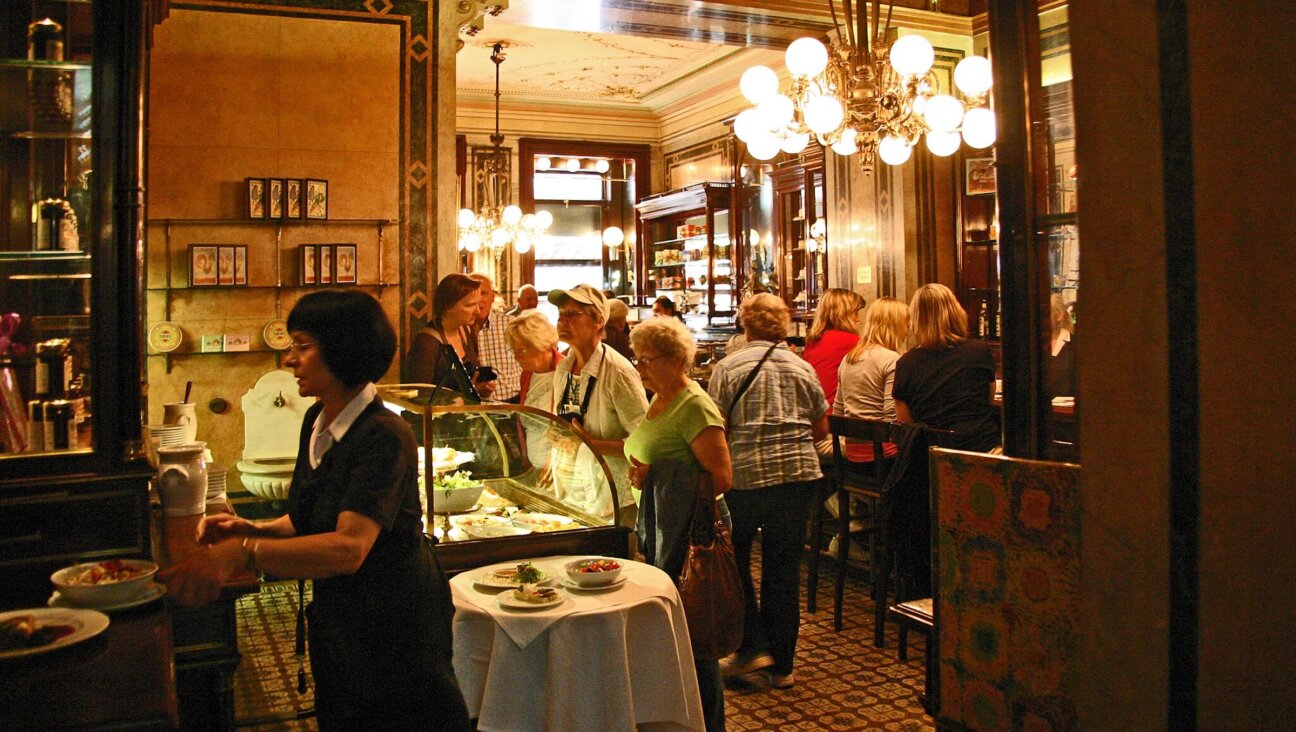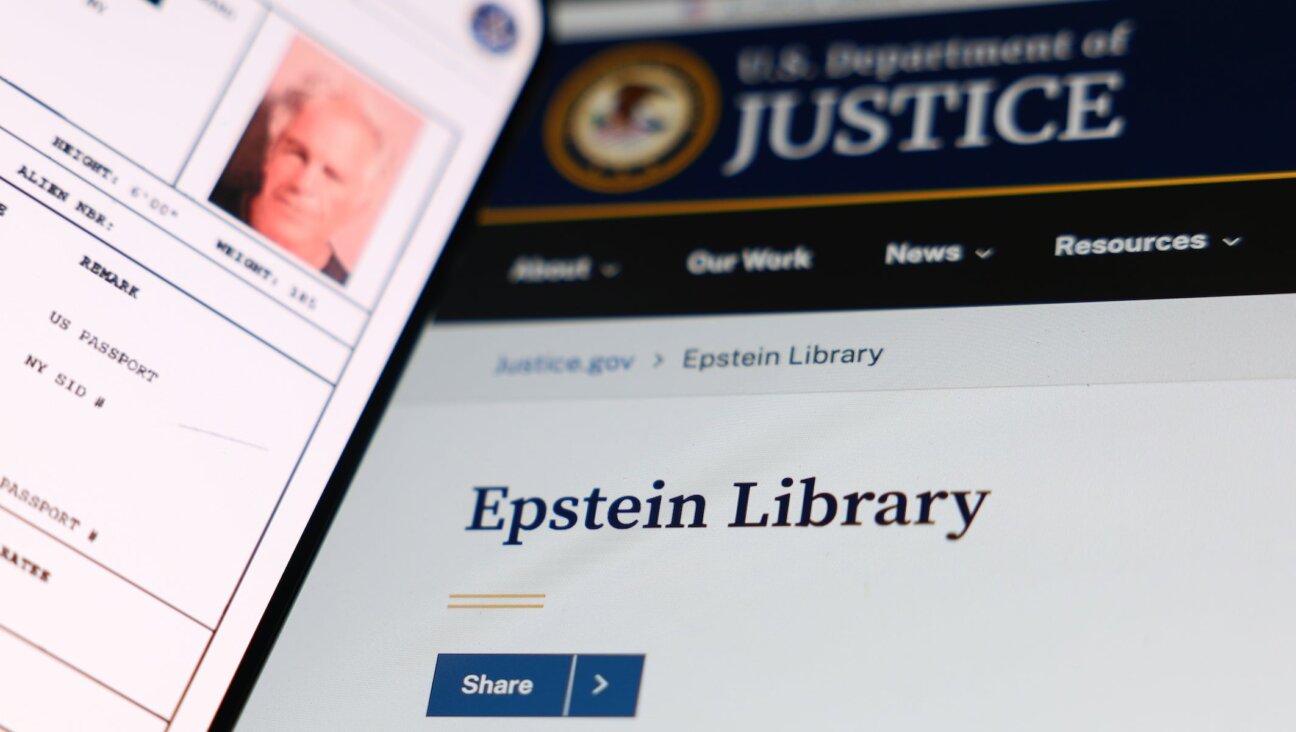Closing the Book On Homophobia
Today’s topic is hate, homophobia and family values as expressed through children’s media. Maybe that’s three topics, not one. I’m not sure. I’ll ask Tinky Winky and SpongeBob SquarePants, just as soon as they’ve gotten back from Key West.
In any case, certain people seem to be feeling a certain amount of anxiety about our kids’ culture being too gay-friendly.
Example 1: A few weeks ago, the American Family Association and other conservative groups threatened a boycott of American Girl dolls because American Girl contributes to Girls Inc. (formerly Girls Clubs of America), a 141-year-old national nonprofit youth organization. American Girl is currently selling cute little star bracelets, the proceeds of which support Girls Inc.’s programs in science and math, leadership skills and athletics. AFA calls Girls Inc. “a pro-abortion, pro-lesbian advocacy group.” (Wow, like the entire state of Vermont!)
This is because its Web site (in an area it took me several minutes of clicking to find) declares its support for Roe v. Wade and says that girls have a right to “positive, supportive environments” when “dealing with issues of sexual orientation.”
Example 2: The American Library Association’s annual list of the 10 most frequently challenged and banned books for last year included no fewer than three books that have gay themes. (Challenged books are books in school or in public libraries against which someone has filed a formal complaint asking that the book be removed because of its content. Banned books are books that actually have been removed after a challenge.) The challenged books dealing with gay issues were the classic “I Know Why the Caged Bird Sings” by Maya Angelou (Random House, 1970), a 1999 young-adult novel called “The Perks of Being a Wallflower” (MTV) by Stephen Chbosky (in which one of the main character’s friends is gay) and a fairy tale (literally) called “King & King” (Tricycle Press, 2002) by Linda de Haan and Stern Nijland in which two princes fall in love and get married. And heads-up to would-be book burners next year: Carson Kressley, the queerest of the “Queer Eye for the Straight Guy” guys, has just this week published a children’s book called “You’re Different and That’s Super” (Simon & Schuster). It’s about a fey outcast pony who turns out to be a unicorn. That sound you hear is the Reverend Donald Wildmon hitting the ceiling.
Example 3: U.S. Rep. Walter Jones, a Republican from North Carolina, heretofore known as the man who came up with “freedom fries” (and the somehow less zingy “freedom toast”) for the House cafeteria, introduced legislation (HR 2295) giving parents more authority to determine what children read in school libraries and classrooms. Jones was inspired to introduce the legislation after seeing a copy of “King & King,” though the book is not actually in any school in his district. The Parental Empowerment Act of 2005 would create local review boards of five to 15 parents who would review elementary school reading materials before they could be purchased. States that didn’t use parental panels would lose all federal education funding. (Apparently they’ll have to fund schools via gay bake sales and selling their old Village People Halloween costumes on eBay.)
And of course, Tinky, Arthur the glasses-wearing aardvark and SpongeBob all have been seen at Bette Midler concerts, if you know what I mean. And I think you do.
None of this is particularly new, of course. The fear that our godless, libertine culture is recruiting the youth of today to Go Gay, possibly with incentive rewards of toasters and other kitchen appliances, has been around as long as there has been culture.
Then again, when you have a 4-year-old and a 1-year-old, everything old is new again. As an ironic childless hipster, I could simply roll my eyes at the haters and their backward ways. Their mishigas had no immediate bearing on my little universe; I’d lived in only three cities in my adult life: Cambridge, Mass.; San Francisco, and New York City. Not a lot of people burning copies of “Harry Potter” in The Castro or pontificating about “Adam and Steve” in Chelsea. But as a parent, I can’t take anything for granted. At 2, Josie was coming home from the playground saying, “Only girls can wear earrings!” and “Boys can’t wear skirts!” I know I sound like the biggest granola muncher on the planet, but I corrected her, talked to her about the fact that some boys do wear skirts and some boys (like, um, Daddy) wear earrings. In this house, we are pro-choice in all adornment-related matters. Though I did have to laugh when Josie announced, “Boys have a penis, and girls have a vagina,” and then paused, looked thoughtful and exclaimed, “But boys can have a vagina if they want to!” (Well, yes.)
And I do want my girls to know that there are all kinds of families. They don’t need to know what people do in bed for a long, long time, but they do need to know that some kids have two mommies, some have two daddies, some have one parent, some live with a grandma. That’s life. No big deal. The only thing is, so many books about alt-families suck. (This is because most books suck.) They’re poorly written, badly designed, ugly and, most of all, didactic. The books that meet my standards are terrific books, not terrific gay-family books. And Josie loves them, too. We like Justin Richardson and Peter Parnell’s recent “And Tango Makes Three” (Simon & Schuster Children’s Publishing), the story of the two male Central Park Zoo penguins who raise a chick together; “Everywhere Babies” by Susan Meyers and illustrator Marla Frazee (Harcourt Children’s Books, 2001), which matter-of-factly shows adorably illustrated babies doing adorable baby things while all kinds of people beam at them (same-sex parents, interracial couples, single parents, grandparents or older guardians), and “The Family Book” by Todd Parr (Little, Brown & Company, 2003), whose work I normally loathe because it’s cutesy and not fabulously written and looks like it took three minutes to make with a MacPaint program on a 1988 Apple computer. But this book really is charming. It simply says that there are all kinds of families. Humans, animals and space aliens illustrate his points about the fun things that all kinds of families can do together. Sweet.
We also have a number of books that just show a mom or a dad, so they’d work for lesbian or gay parents as well as for single parents of any orientation. Since it’s easier to find books with just a mom, allow me to recommend some dad-centric little-kid books: “Hush, Little Alien” by Daniel Kirk (Hyperion, 1999) (a huge hit with both my girls from infancy on), “Guess How Much I Love You” by Sam McBratney and illustrator Anita Jeram (Candlewick, 1995), and “10 Minutes Till Bedtime” by the very funny Peggy Rathmann (Putman, 1998).
But back to banned books. Since 1919, teachers, librarians and booksellers have celebrated Children’s Book Week during the week before Thanksgiving. This year, it’ll start November 14. Why not celebrate by reading one of the ALA’s 100 most frequently challenged books? I think we’ll read another book on this year’s list, Maurice Sendak’s “In the Night Kitchen.” This title didn’t set off the conservatives’ gaydar (though some of those bakers seem a little yeasty in the loafers, if you know what I mean), but it does feature a small, dreamy illustration of a naked toddler, a clear indication that the world is going to hell. Astonishingly, we’ve read the book about 1 million times and Josie never has noticed. Hmm. Maybe we should invite Rep. Jones over to point this out to her.
As for the American Girl boycott: I myself have been boycotting American Girl for many years. But only because I think dolls are creepy and want to stab me in my sleep. Okay, and also because the idea of getting dragged into a universe in which you have to buy the dolls (at $87 a pop) and the clothes for the dolls and the matching clothes for your child and the wagons and the beds and the horses and the books and then you have to take the entire plastic mishpocha to American Girl Place and get everybody’s hair styled and eat in the café with its special doll-chairs and teas and… where was this sentence going? Oh yeah, it makes me hyperventilate. (And American Girl is like the black-tar heroin of the doll world. You think you’re just going to buy one educational book and one Kirsten the 1854 Pioneer Girl from Minnesota, but before you know it you’ve bought 42 dolls and you’re muttering to yourself and living in a cardboard box on the Bowery. Plus I’m weak. You know how well my hardline anti-consumerist stance with Build-a-Bear went.) Until now, conservatives loved American Girl, what with the dolls being patriotic and nonhoochily dressed. My own mother-in-law has been salivating to buy Josie one since her birth. I’ve always said no. Now, however, thanks to this boycott, I just told her to knock herself out. Thank you, American Family Association! The enemy of my enemy is my doll!
Write to Marjorie at [email protected].















